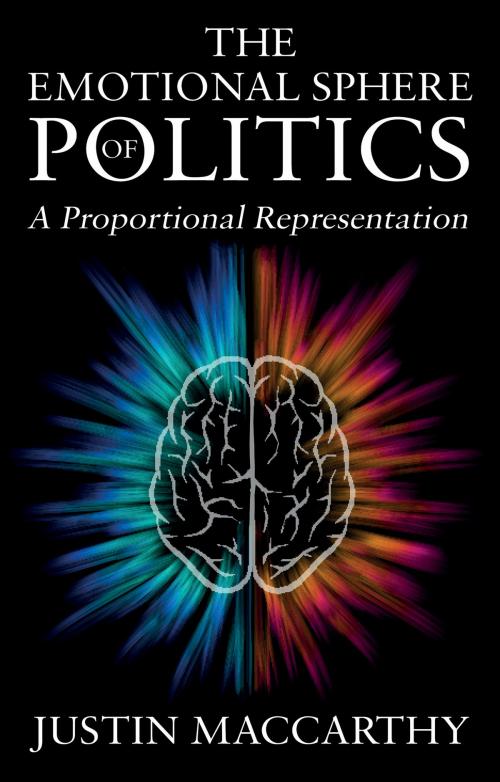The Emotional Sphere of Politics
A Proportional Representation
Nonfiction, Social & Cultural Studies, Political Science| Author: | Justin MacCarthy | ISBN: | 9781783068050 |
| Publisher: | Troubador Publishing Ltd | Publication: | February 28, 2014 |
| Imprint: | Matador | Language: | English |
| Author: | Justin MacCarthy |
| ISBN: | 9781783068050 |
| Publisher: | Troubador Publishing Ltd |
| Publication: | February 28, 2014 |
| Imprint: | Matador |
| Language: | English |
In The Emotional Sphere of Politics, Justin MacCarthy explores the premise that there are four sets of conflicting emotions (Security versus Freedom, Property versus Communality, Equality versus Status and Order versus Nature) which are an integral part of the human condition. Having these four pairs of contradictory needs makes it extremely difficult for party politicians to meet our expectations, as each party has a particular focus on just one single need. These party politicians promise us that increased adherence to their particular dogma will lead us to Nirvana, but in fact it usually leads to excess and hubris. The most notorious example of excess is fascism, which is an ultra form of nationalism. But there are two sides to every coin, and all of the ideological excesses can be matched by political virtues. For example, the capitalist vice of greed can be offset by the virtue of philanthropy. MacCarthy sets out to show how these political forces neatly fit together into what is quite literally The Emotional Sphere of Politics, in three-dimensional form. The interrelationship of eight major political movements of the 20th century with our basic human emotions are each examined individually, from how ‘Authoritarianism promises us Security’, to how ‘The Communists claim to be the Organisers of our resources for the benefit of all’. Similar to The Righteous Mind by Jonathan Haidt, it examines why people feel so differently about political issues, making this book is a fascinating read for anyone interested in politics.
In The Emotional Sphere of Politics, Justin MacCarthy explores the premise that there are four sets of conflicting emotions (Security versus Freedom, Property versus Communality, Equality versus Status and Order versus Nature) which are an integral part of the human condition. Having these four pairs of contradictory needs makes it extremely difficult for party politicians to meet our expectations, as each party has a particular focus on just one single need. These party politicians promise us that increased adherence to their particular dogma will lead us to Nirvana, but in fact it usually leads to excess and hubris. The most notorious example of excess is fascism, which is an ultra form of nationalism. But there are two sides to every coin, and all of the ideological excesses can be matched by political virtues. For example, the capitalist vice of greed can be offset by the virtue of philanthropy. MacCarthy sets out to show how these political forces neatly fit together into what is quite literally The Emotional Sphere of Politics, in three-dimensional form. The interrelationship of eight major political movements of the 20th century with our basic human emotions are each examined individually, from how ‘Authoritarianism promises us Security’, to how ‘The Communists claim to be the Organisers of our resources for the benefit of all’. Similar to The Righteous Mind by Jonathan Haidt, it examines why people feel so differently about political issues, making this book is a fascinating read for anyone interested in politics.















